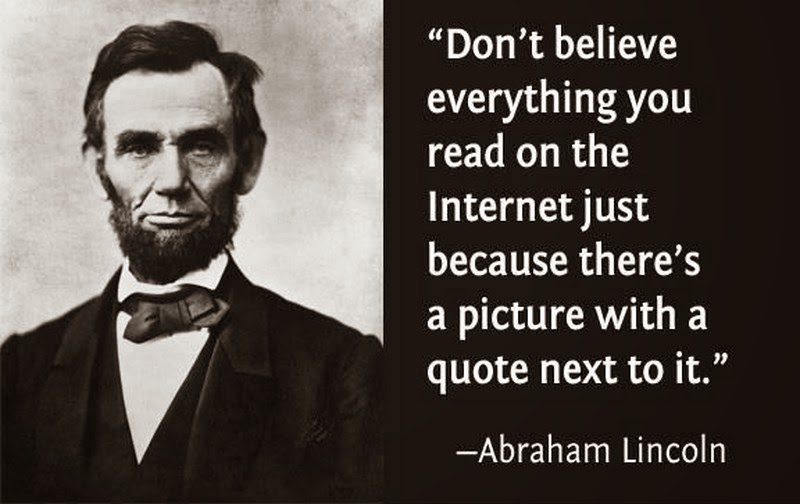Reflections and Collections for the 21st Century Social Studies Classroom
|
by Matt Doran
Over the past several weeks, I have been crafting new assessment items around skills standards--credibility of sources, bias, stereotypes, claims, supporting evidence, etc. It strikes me that in the Internet and social media era, we need to update our thinking skills to address Internet legends, viral videos, and social media memes. How do we wade through the multitude of spurious quotes, stories, and claims?
Remember the words of Lincoln... Your comment will be posted after it is approved.
Leave a Reply. |
Blog Categories
All
Blog Archives
August 2020
|

 RSS Feed
RSS Feed

12/21/2015
0 Comments